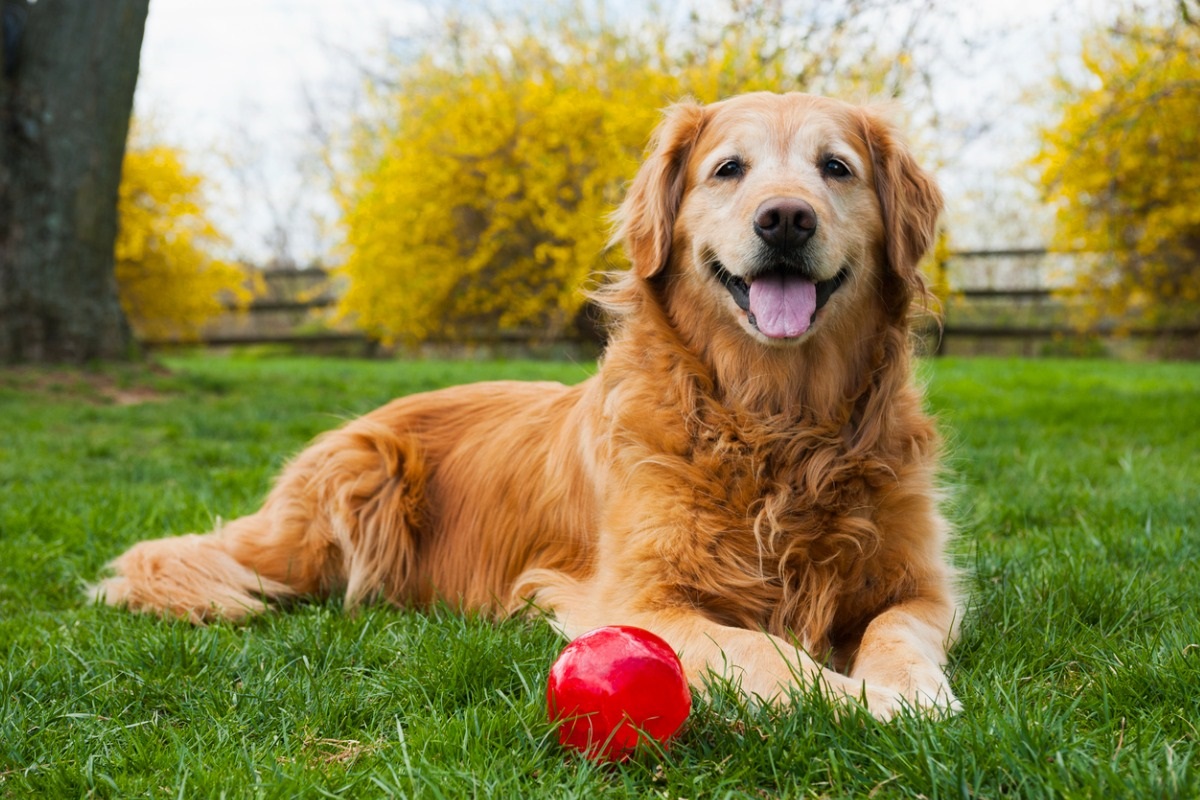November is National Adopt a Senior Pet Month, and to raise awareness of how to best care for our senior four-legged companions, PETstock Vet Dr Tara Morris has shared some helpful tips.
As our pets get older, they can become more inclined to health issues such as dementia, arthritis, dental issues and reduced mobility, and more care and support is required from their owners.
Dog Dementia
As pets age, there can often be decreased levels of brain function, loss of spatial awareness and memory deficits. This can all be signs of dog dementia, with canines 52 per cent more likely to develop the condition every year after their 10th birthday.
It’s important to take your senior dog for regular veterinary check-ups and keep an eye out for any unusual behaviours such as disrupted sleep, increased confusion, and a sudden surge of ‘accidents’ at home.
To support the prevention of dementia, keeping your dog physically and mentally active is extremely important with just a few daily activities.
Play games with your dog, allow them to continue to have new experiences and regular socialisation, avoid stressful situations, feed them a balanced diet, and ensure they receive regular exercise.
Senior pet care tips
Senior pets have different needs to adult dogs and puppies, and to provide them with the best possible care, you will need to do things a little bit differently to keep them healthy.
Monitor their skin for any lumps or bumps to ensure that any potential cancers or tumours are treated as swiftly as possible, this can be through regular grooming and frequent brushing of your pet to keep the matting at bay.
As pets age, their dental health can deteriorate so incorporating teeth brushing, dental treats and even dental specific diets will all help with the prevention of dental disease. It’s also important to visit the vet every six months to ensure your pet’s teeth and gums remain clean and healthy.
Alter their diet to an age-appropriate diet to help prevent weight gain. Age-specific diets are often low in fat with fewer calories and include supplements specific to their needs.
Continue with their flea, tick, and worming protection as this will continue to remain important.
With reduced mobility, ensure your pet has soft bedding and avoids coming up and down the stairs to reduce the impact on their joints.
Arthritis is a common condition found in pets of an older age, so keeping your elderly dog’s diet healthy and encouraging gentle exercise will help minimise arthritis discomfort, even if prevention is not always possible. It’s also worth talking to your vet about supplements and medications to help relieve their arthritis. Look out for symptoms like difficulty getting up, reluctance to walk and stiffness. A dog with well-managed arthritis can live a long and healthy life, enjoying plenty of cuddles and love from their owners, well after diagnosis.
End-of-life care
Coping with the loss of a furry friend can undoubtedly be one of the most painful experiences that any pet owner will deal with.
While many of us would prefer our pets to pass away peacefully in their sleep at the right time, the reality is that sometimes we must make that decision for them. This decision should always be made in discussion with your veterinarian, as they will be able to give you their professional opinion on your pet’s health and wellbeing.
Euthanasia will only be recommended when your pet’s quality of life is reduced and there is no reasonable prospect of recovery or pain management. If euthanasia is not right for your pet in their current condition, there are medications that can be prescribed to alleviate pain and make your pet feel more comfortable as they continue to slow down.
At what age is a pet ‘senior’?
Whether your pet is considered ‘senior’ will depend on their breed and size.
For smaller dogs, they’re considered senior when they reach roughly 11 years old, medium sized canines are classified elderly at 10 years old and large to giant dogs hit the milestone at just seven or eight years of age. Cats are considered senior at 11 years old and Guinea pigs and rabbits at five years old.
Losing a core family member is difficult, but it’s important to make sure the discomfort is reduced as much as possible in their final moments. Let your pet know that they are loved and cared for by pampering them with cuddles and affection surrounding them with their favourite toys and blankets.
To stay up to date on the latest industry headlines, sign up to the Pet Industry News e-newsletter.

